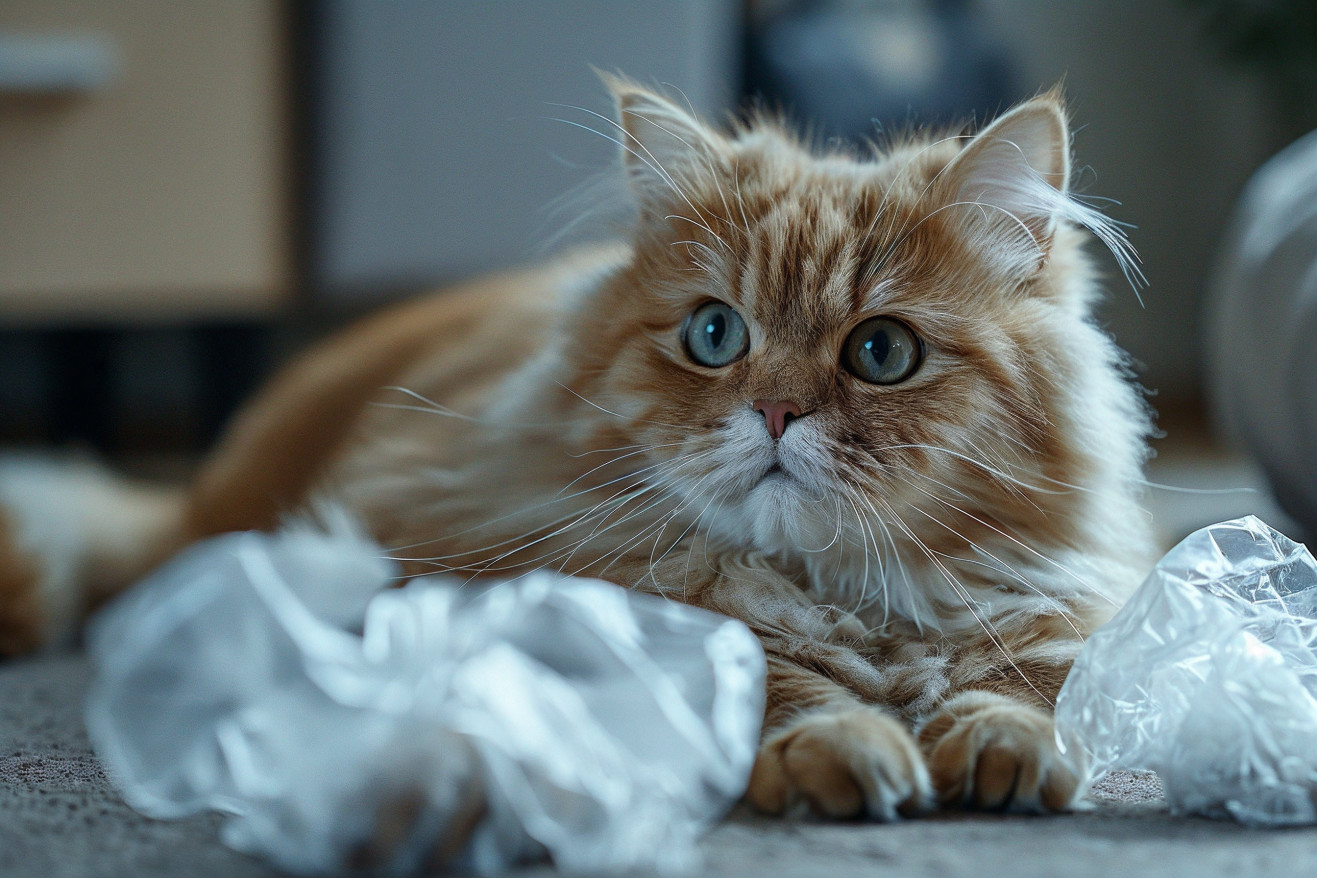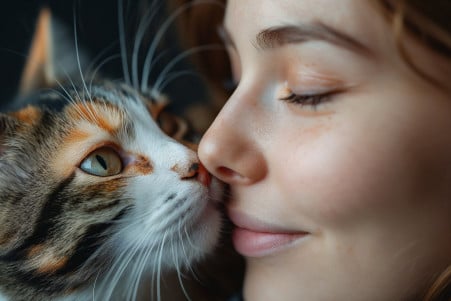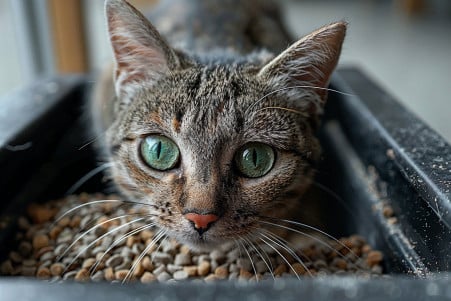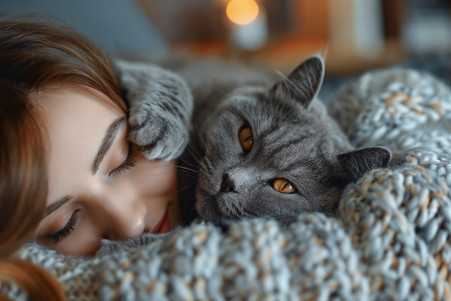Why Do Cats Lick Plastic? What This Weird Feline Behavior Means
10 May 2024 • Updated 10 May 2024

Many cat owners have witnessed their pets licking plastic bags, shower curtains, and other synthetic materials that are not meant to be eaten. While this behavior may seem strange, there are several interesting reasons why cats may be drawn to plastic. Cats may lick plastic because they are attracted to the odor or taste of certain plastics, they enjoy the texture and noise it makes, or they could be seeking out the nutrients and oils that rub off on plastic from human hands.
Although it may seem odd, this behavior can tell us a lot about the sensory experiences and preferences of our pet cats. To find out more about why cats lick plastic, we will look at research from veterinary science, animal behavior studies, and investigations into the nutritional and sensory needs of cats. Through these different areas of research, we can uncover the physiological and psychological factors that drive cats to lick non-food items.
Why do cats lick plastic?
The Sensory Appeal: Investigating the Textures, Sounds, and Smells That Make Cats Lick Plastic
There are a few different ways to explain why cats are attracted to the sensory experience of licking plastic. Cats have a sense of smell that is between 14 and 40 times better than humans, so they may be able to detect food smells or oils that have been left on plastic bags or other items. The smooth, cool texture of plastic may also be satisfying to them when they lick it. Finally, the sound that plastic makes when licked may remind cats of the sounds that prey make, which could stimulate their hunting instincts.
Some breeds, such as Siamese and Burmese cats, may be more likely to lick plastic because of their heightened senses and curiosity. However, pet parents can help cats meet their sensory needs in a safer way by offering them different textures, sounds, and smells through enrichment toys and activities. For example, pet parents can offer cats a variety of surfaces to scratch, toys that make crinkly sounds when they're played with, or toys that have been infused with scents like catnip. By redirecting the behavior, pet parents can help cats get their sensory needs met without the risk of eating plastic.
Pica and Compulsive Disorders: When Plastic Licking Is a Sign of a Bigger Problem
In some cases, plastic licking or chewing may be a sign of pica, a compulsive disorder that leads cats to eat non-food items. According to The Wildest, pica can be caused by medical issues such as nutritional deficiencies, dental problems, and gastrointestinal problems. Stress, anxiety, and boredom are also listed as potential causes of compulsive disorders like pica in cats by Cats.com.
Because eating plastic can cause health problems like intestinal blockages and toxicity, it's important to address the cause of the behavior. In severe cases of pica, the cat will eat the object, which can lead to issues like gastrointestinal perforation and electrocution, according to WagWalking. If a cat is licking or chewing plastic on a regular basis, it's important to see a vet to make sure there aren't any medical or behavioral issues at play.
How to Stop Cats From Eating Plastic
Limiting access to plastic items and keeping them out of reach can help stop cats from eating or licking them, according to wikiHow Pet. Spraying or coating plastic items with deterrents can also discourage cats from licking or chewing on them, according to Daily Paws.
Providing toys and other enrichment opportunities that offer the same textures, sounds, and smells as plastic can redirect the behavior in a way that's safer for cats, according to Rover.com. Increasing the amount of time cats spend playing, exercising, and engaging in other activities that stimulate them can help reduce boredom, which can lead to plastic eating, according to wikiHow Pet.
Giving cats appropriate chew toys or treats that are made for them can help satisfy their natural urge to chew in a way that's safe, according to Daily Paws. By addressing the root causes of the behavior, whether it's a need for sensory stimulation, boredom, or a compulsive disorder, cat owners can help reduce the risk of plastic eating.
Positive Reinforcement and Training: Encouraging Desirable Behaviors
Positive reinforcement methods, like giving treats or love when a cat does something good, can help deter plastic licking, says Feline Behavior Solutions. By consistently giving a cat a treat when they play with a toy or chew on something they're supposed to, you can help them learn that those are the behaviors you want to see. Meanwhile, wikiHow Pet points out that punishment and negative reinforcement, like yelling or using a spray bottle, is generally not effective and can lead to more stress and anxiety in cats.
Storables suggests that pet parents can also help by slowly introducing new toys or enrichment activities and then rewarding their cats when they show interest in them. It's important to remember that positive reinforcement training takes time and consistency. However, by giving cats other ways to express their natural chewing and investigative behaviors, pet parents can help stop plastic licking.
Stress and Anxiety: Addressing Underlying Emotional Factors
Plastic licking or chewing may be a sign of stress, anxiety, or obsessive-compulsive disorder in cats, according to Why Does My Cat Eat Plastic (Reasons & Prevention). Stress and anxiety in cats can be caused by a variety of factors, including changes in the environment, lack of mental and physical stimulation, conflicts with other pets, and poor relationships with their human caregivers, according to How Can You Reduce Your Cat's Stress at Home?.
Chronic stress can lead to physical and behavioral issues, including compulsive behaviors like pica or excessive licking, according to Battersea Dogs & Cats Home. To help reduce stress and anxiety, pet parents can work to identify and eliminate potential stressors, provide environmental enrichment, and improve their relationship with their cat. In some cases, veterinary care may be needed to determine if pheromones, supplements, or medications can be used to help manage a cat's stress or anxiety.
By working to address the underlying emotional factors that may be contributing to a cat's plastic licking behavior, pet parents can help prevent the potential health risks associated with pica.
Conclusion: Creating a Healthy and Stimulating Environment for Cats
Cats licking or chewing on plastic objects is a common behavior that can stem from various factors, including sensory appeal, compulsive disorders, or underlying stress and anxiety. Understanding the motivations behind this behavior is crucial for addressing it effectively and ensuring the well-being of feline companions.
Providing a safe and enriched environment, with appropriate toys and activities that mimic the textures, sounds, and scents that attract cats to plastic, can help redirect this behavior in a positive way. Seeking veterinary guidance is essential if the behavior persists or is accompanied by other concerning signs, as it may indicate an underlying medical or psychological issue.
By fostering a healthy and enriched environment, cat owners can help their feline friends thrive and prevent potential health risks associated with ingesting plastic.


